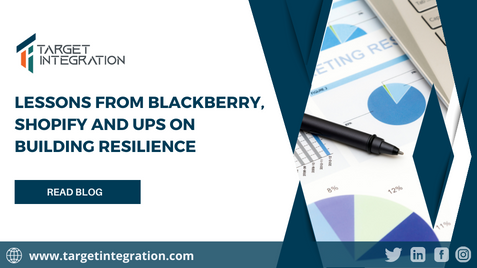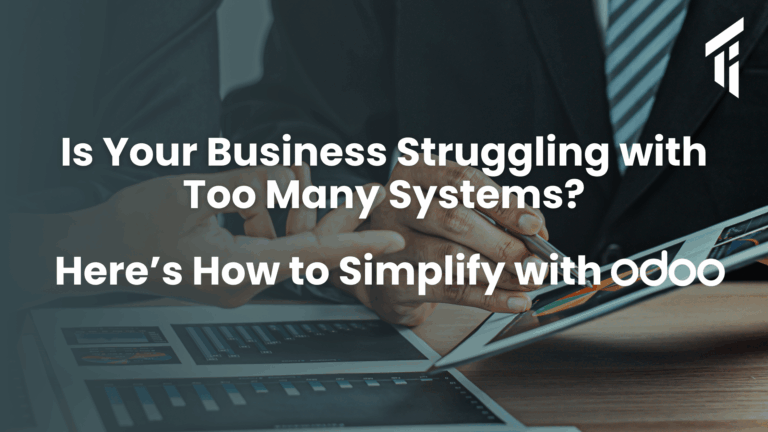
Building resilience as a business helps organisations to understand and deal with unforeseen events. With the rising climate crisis and accompanying bills, as well as recessions, global conflicts and disruption to supply lines, having the processes in place that help a business to adapt to challenging events and improve productivity while doing so can limit the amount of that it faces throughout its business operations.
Events such as the war in Ukraine, the cost-of-living crisis and global warming have put increasing pressure on small business owners to develop and maintain their profitability. With the vast majority of SMEs operating outside of the tech and finance industries relying on traditional business processes and legacy software, if any, there’s a huge potential for upscaling, upskilling and futureproofing an organisation against these types of events.
SMEs provide up to 60% of employment opportunities throughout the UK and Ireland, as well as up to half of these nation’s annual economic turnover. With so many crises facing and affecting the economic sector now and in the future, it’s vitally important for SMEs to transition into a more efficient, sustainable and productive working model. Businesses like these make up to 90% of the world’s private economy, highlighting the importance of creating robust working models that can withstand changes throughout the world.
The most resilient working business models have several key elements, focusing on accessibility, automation, sustainability and digital platforms. These four elements help transition an organisation from a traditional working model to a modern, digitally focused business.

Accessibility
The larger an organisation grows, the harder it is to understand the full breadth of the actual business. Supply lines begin to stretch into unknown territories, with products and materials sourced in areas the company isn’t fully aware of. Internal communication lines become confused, with employees using different channels to communicate with each other and with customers. It might be that the company doesn’t keep any record of these interactions, creating the potential for confusion and lost business. Growth can result in businesses becoming overwhelmed by their own departments and employees, not knowing or fully understanding what’s actually occurring within the company.
This type of confusion can have a huge impact on a business, leading to wasted time, effort and money. SMEs undergoing growth with less access to resources, and less in-house talent to implement these changes, might face further confusion.
Business management services are the key to providing easy access and clear reporting about interactions and business processes within a company. Only by understanding and acknowledging every part of a business can long-term improvements and investments be made. Management services centralise all of a company’s operations in one easily accessible area, for employees, management and leadership. Services such as a customer relationship management program, or an enterprise resource planning system cater to different industries, specialised use cases and even specific products.
These services report on and simplify the workings of a company, allowing the company to make informed decisions about how their organisation works. Understanding the operations of a company can have effects on every part of the business. A clear and understandable supply line allows organisations to make better decisions about where and how they source their products, while a detailed collection of customer interactions will allow a sales team to develop better strategies and selling techniques.
All of this has the potential of reducing operational costs by cutting down on ineffective, inefficient work, while improving productivity and employee satisfaction by providing easily understandable work process and easily accessible information and communication lines.
Automation
Automating services within an SME can free up hundreds of hours of employee time, increasing employee satisfaction and keeping the focus on creative efforts such as strategy and development. Rudimentary tasks such as administration, invoicing, emailing and data entry are all easily automisable, saving companies time and effort on basic tasks. For example, an expanding SME has a customer base of 400. A single invoice takes an employee 2 minutes to create and send to the correct customer. Every week, automating this simple task saves an employee 800 minutes, or 13 hours, of work. Applied across the company, automating tasks of this nature can save an organisation hundreds of hours.

The advent of generative artificial intelligence and machine learning has made automation, quicker, more effective and able to handle advanced tasks. Warehouse procurement, stocking, inventory management and customer engagement are all now tasks that a company can heavily automate and benefit from. Services such as an ERP streamline complicated problems immensely, collecting and analysing huge amounts of data in one singular place for a business to use.
Automation is expected to grow nine European economies by 550 billion by 2025, highlghting the importance of the technology. Using automation to free up time for employees to focus on more important things as well as using it to develop better, more refined business strategies can lead to massive improvement for a company.
Target Integration offers un-biased advice, implementation, training and on-call service for business management services, led by our expert-teams across the world. With a decade of experience and partnerships with the industries leading vendors, our knowledge is something you can trust.

Sustainability
Sustainability has been highlighted as one of the biggest concern for small business owners in Northern Ireland. Both the United Kingdom and Ireland have begun to introduce policies and initiatives to try and entice SMEs into sustainable business practices, with the aim of merging digital transformation and climate goals into one key policy. As the world moves more and more towards accepting sustainable practices, pressure from customers and government also increases.
The majority of customers now say that sustainable practices is one of the most important factors when it comes to choosing a business and buying a product. Shareholders and investors also underline the importance of sustainability, with huge amounts of assets now invested sustainably.
New technologies such as automation, and practices such as having clear and accessible supply chains, all contribute to a more sustainable future. Many large corporations and governments have committed to a Net-Zero target by 2030 or 2050, highlighting the importance of such a transition. The same pressures apply to SMEs, through pressure from customers and new policies.
Smaller businesses can benefit rapidly from implementing green technologies throughout their business, such as solar panels or heat pumps. This can have a direct impact on overhead costs and are also supported through grants and schemes. Ideas such as sustainable packaging and better materials have a positive impact on customer relations and allow organisations to develop marketing strategies and campaigns around a positive social movement.
Adopting sustainable measures and practices into a business strengthens its commitment to its customers and the environment, having an all-round positive effect. It can directly reduce operational costs and makes use of new, innovative technologies.
Looking to reduce your reliance on old systems, lower your carbon footprint and move your administration online? At Target Integration, we futureproof your business through seamless, secure digital transformations, reducing your carbon footprint and maximising your productivity.
Digital platforms
Customers, now more than ever, insist on having access to digital platforms and channels to interact with businesses. A study done by Research Insights the shopping habits show that 36% of Gen X people want their businesses to develop a hybrid model, integrating both online platforms and traditional shopping methods. Social media and e-commerce offer huge potential to once traditional-businesses, and can often only require a minimum of effort and resources to establish and maintain.

Social media platforms offer businesses a chance to share and connect with their audience, creating personal interactions and releasing information and news about the organisation to a wide audience. These platforms often offer in-house analytic and marketing tools, helping businesses to get a better understanding of their target audience. The advent of social media marketing has opened up an entirely new domain for marketing professionals, with several diverse choices and market audiences.
E-commerce offers businesses a way to sell online, through their own websites and through affiliates. This form of selling gives companies a greater reach and better access to new audiences, while also maintaining local customers. A fully integrated website and e-commerce site offer customers the chance to explore and learn about the organisation, while buying their goods and services. Companies can use websites to gather detailed information on what their customers like, how they interact with certain products and what they can improve.
Events such as the COVID-19 pandemic forced businesses to go online and expand their business digitally and the trend has continued to this day. More than 1 in 4 businesses in Ireland have sold products or services through e-commerce and the UK currently has one of the largest industries in the world, with around 60 million users and growing.



